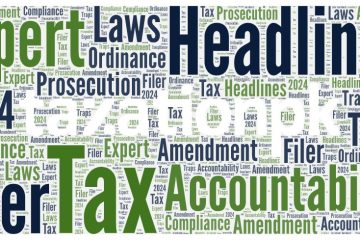Pakistan’s government has unveiled a budget for the 2024-25 fiscal year aiming to raise Rs. 1.76 trillion ($8.3 billion) in new revenue. This significant increase will come from a combination of tax hikes, withdrawal of exemptions, and stricter enforcement measures. Let’s delve into the key aspects of this budget and their potential impact.
Focus on Tax Revenue:
The budget heavily emphasizes raising tax revenue through various means. Here’s a breakdown of the proposed changes:
- Income Tax: Salary earners will see a significant rise in their tax burden. Those earning between Rs. 50,000 and Rs. 100,000 will face a doubled tax rate, while higher income brackets will also see increases in rates and fixed tax amounts. Non-salaried individuals are also subject to progressive tax rate hikes. This is expected to generate an additional Rs. 220 billion.
- Property Transactions: New progressive tax rates are introduced for buying and selling properties. These rates vary based on the property value and the tax filer status of the involved parties. Filers will pay lower rates compared to non-filers, who face the highest tax burden. Additionally, a withholding tax will be deducted at the source during property sales. This is expected to bring in Rs. 200 billion.
- Capital Gains Tax: The government proposes a flat 15% tax on capital gains from immovable property sales for filers, regardless of the holding period. Non-filers will face a progressive tax structure. Similarly, a new capital gains tax rate applies to the sale of securities, with a flat 15% for filers and standard tax rates with a minimum of 15% for non-filers. Income tax on capital gains from mutual funds is also increased.
- Sales Tax: Several new sales taxes and increases in existing ones are proposed. These include a 10% tax on stationery, plant machinery supplied to tribal areas, vermicelli, poultry feed, and newsprint (excluding brochures). Additionally, a standard 18% sales tax rate applies to most mobile phones, while a 10% tax is imposed on oil cake and tractors.
- Federal Excise Duty (FED): New FEDs are introduced on acetate, nicotine pouches, e-liquids, and sugar supplied to manufacturers. The FED rate on cement is also increased. Additionally, a 5% FED is imposed on commercial and first-sale residential properties.
- Customs Duty: The government plans to raise Rs. 40 billion through additional customs duties on 1,600 tariff lines. Regulatory duty on used vehicle imports is brought on par with new vehicles, and concessions for hybrid car imports are withdrawn. To protect local industries, duties on importing raw materials and semi-finished products are imposed. Customs duty exemptions on fresh and dry fruits are withdrawn, and concessions on electric vehicle imports exceeding $50,000 are reduced.
Potential Impact:
These changes are expected to raise significant revenue for the government, but they also come with potential downsides:
- Inflationary Pressures: The withdrawal of exemptions and increased taxes on various goods and services are likely to lead to price hikes, impacting consumers.
- Increased Tax Burden: Salaried individuals and property owners, particularly non-filers, will face a higher tax burden.
- Impact on Businesses: Increased taxes and customs duties may impact businesses by raising their operational costs.
Other Key Measures:
- Automated Revenue Collection: The government aims to generate Rs. 11.1 trillion through automated revenue collection systems in FY25.
- Exporters’ Tax Liability: The government proposes taxing exporters at standard income tax rates, with a minimum tax of 1% of export proceeds.
- FATA/PATA Tax Exemption Extension: The income tax and withholding tax exemption for FATA/PATA regions is extended for another year.
- Incentives for Solar Manufacturing: The government offers incentives for businesses manufacturing solar panels and allied equipment.
Looking Ahead:Â
Pakistan’s budget for 2024-25 prioritizes raising tax revenue through a multitude of measures. While these changes aim to bridge the fiscal gap, they may also increase inflation and the tax burden on individuals and businesses. The success of this budget will depend on the government’s ability to strike a balance between generating revenue and promoting economic growth.







